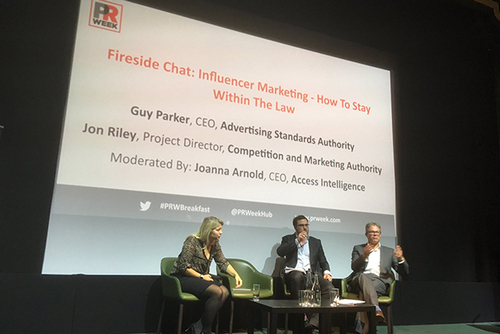The competition watchdog said it has written to “a range of celebrities and social-media influencers” to “gather more information about their posts and the nature of the business agreements they have in place with brands”.
The CMA is also asking the public to share their experiences via an online survey. “The investigation would particularly benefit from hearing from people who have bought products which were endorsed on social media”, the group stated.
The CMA will consider the extent to which influencers are clearly and accurately identifying any commercial relationships, and whether people are being misled.
The organisation said it has seen examples of posts that appear to promote or endorse products without clearly stating whether the post has been paid for, and of posts that offer a personal opinion on a product’s benefit without clearly disclosing whether the person posting is being paid by the brand.
The CMA said it expects to provide an update on this investigation at the end of 2018.
A similar CMA investigation in 2016, which focused on online reviews and endorsements, resulted in four companies giving undertakings to ensure that online advertising would be clearly identified so that it is distinguishable from the opinions of bloggers or journalists.

George Lusty, CMA senior director for consumer protection, said: “Social-media stars can have a big influence on what their followers do and buy.
“If people see clothes, cosmetics, a car or holiday being plugged by someone they admire, they might be swayed into buying it.
“So, it’s really important they are clearly told whether a celebrity is promoting a product because they have bought it themselves, or because they have been paid or thanked in some way by the brand.”
In March this year, the Advertising Standards Authority started a project that examines whether online browsers are able to recognise online ads as ads, including by how they are labelled.
A study from 2016 found that six in 10 marketing and PR professionals admitted to flouting the UK’s official code relating to influencer marketing.


